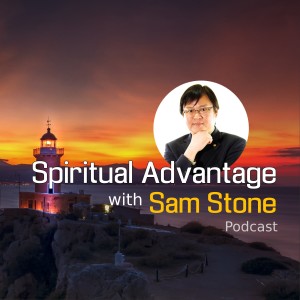
Once upon a time, a family in a small village owned a strong and dependable horse that helped the family in farming and transportation. They loved the animal and treated it like a family member, but one day, the horse suddenly disappeared. Many villagers felt sorry for them and thought they were cursed.
They came to express their sympathy, but the old man of the family replied with a smile, “Don’t be sorry for us! It may or may not be a bad thing.” The villagers were surprised at the old man for taking it lightly because losing the family horse in those days was equivalent to losing their livelihood.
A couple of months later, the horse returned, bringing ten wild horses along. Suddenly, it was like a windfall of fortunes. The villagers came and congratulated the family for the great blessing they received, but the old man said, “Oh, don’t get too excited! It may or may not be a good thing.”
As the old man’s son tried to train the wild horses, he fell from a horse and broke his leg. The villagers thought this family was now completely cursed. With a disabled son, who would work the farm and feed the family? Which woman would marry a cripple? This family’s lineage had ended.
The villagers came to console the family, but again, the old man said, “Don’t be sorry for us. It may or may not be a bad thing.” Some villagers sneered, thinking the old man was insane and in denial. His future was ruined.
A few months later, a war broke out, and the government summoned every family with an able-body man to join the military to fight the war. His son was spared from the draft due to his broken leg. The fierce fallout between the two countries resulted in heavy casualties.
Many families in the village lost their sons in the war, and they began to appreciate the old man for at least having a son with a broken leg to take care of the family. (End of the story.)
This story keeps me humble because, as I grow older, I’ve discovered that a lot of things in life are not the way we thought they would turn out to be. We think we know what a blessing or a curse is and fail to welcome the surprises.
It takes humility to see the blessings in disguise, count the blessings, and express gratitude. Faith is humility, not confidence. Somehow, we equate faith with confidence. So we want stronger faith and build confidence. The disciples asked Jesus for more faith, but Jesus said all you need is faith the size of a mustard seed, and with just that, you can move mountains and fulfill impossible missions.
By teaching us to have a mustard-seed-sized faith, Jesus wants us to have a humble faith because a strong faith can make us corky, just like the Pharisees and scribes. If you think your faith is not strong, it may be a blessing.
You have heard that courage is not the absence of fear, but courage is moving forward despite the fear. In the same way, faith is not confidence but moving forward despite uncertainty. If you wait until you are confident to move forward, you will never move. It’s normal for a person of faith to feel like having impostor syndrome because it just means you are humble.
On the other hand, it doesn’t mean you can move with zero faith. You do need some faith to move forward, but as Jesus said, all you need is a mustard-seed-sized faith—nothing more and nothing less. If you have more, you will lose humility; if you have less, you will lose mobility. Faith is an art.
The art of faith is keeping the equilibrium at the size of a mustard seed to avoid the devil’s traps of delirious doubt and pernicious pride.
In today’s scripture lesson, Jesus revealed what he meant by the mustard-seed-sized faith. We will learn from him that faith is not confidence but persistence with humility. So, let’s begin!
No comments yet. Be the first to say something!